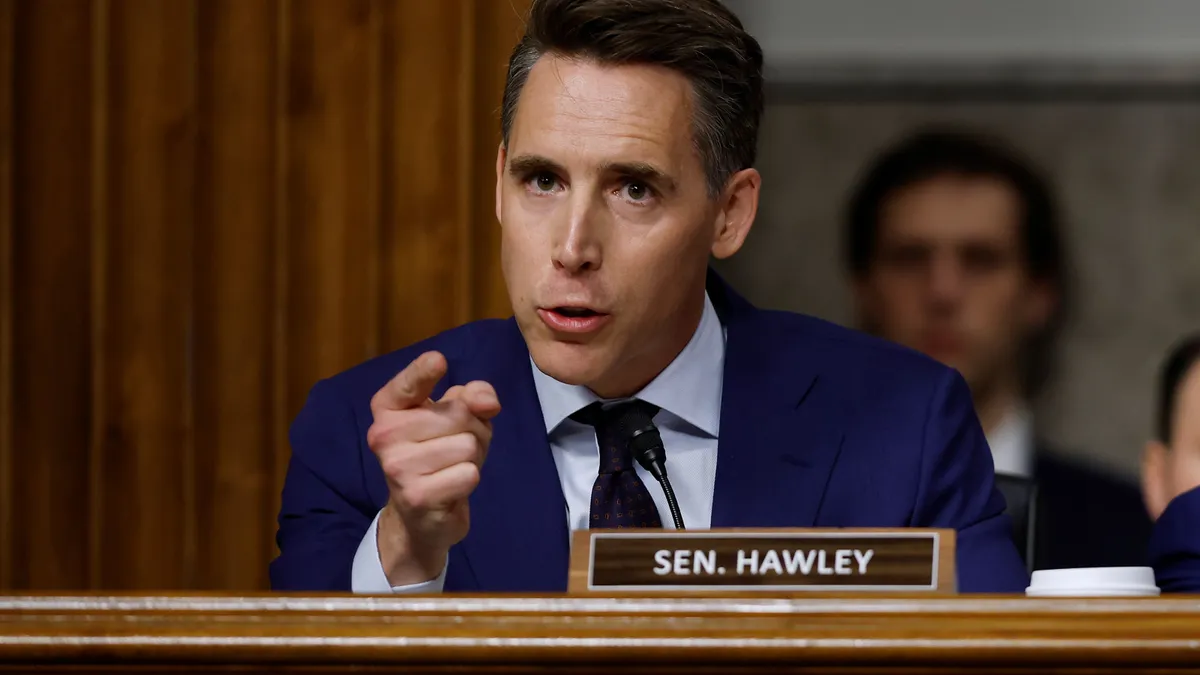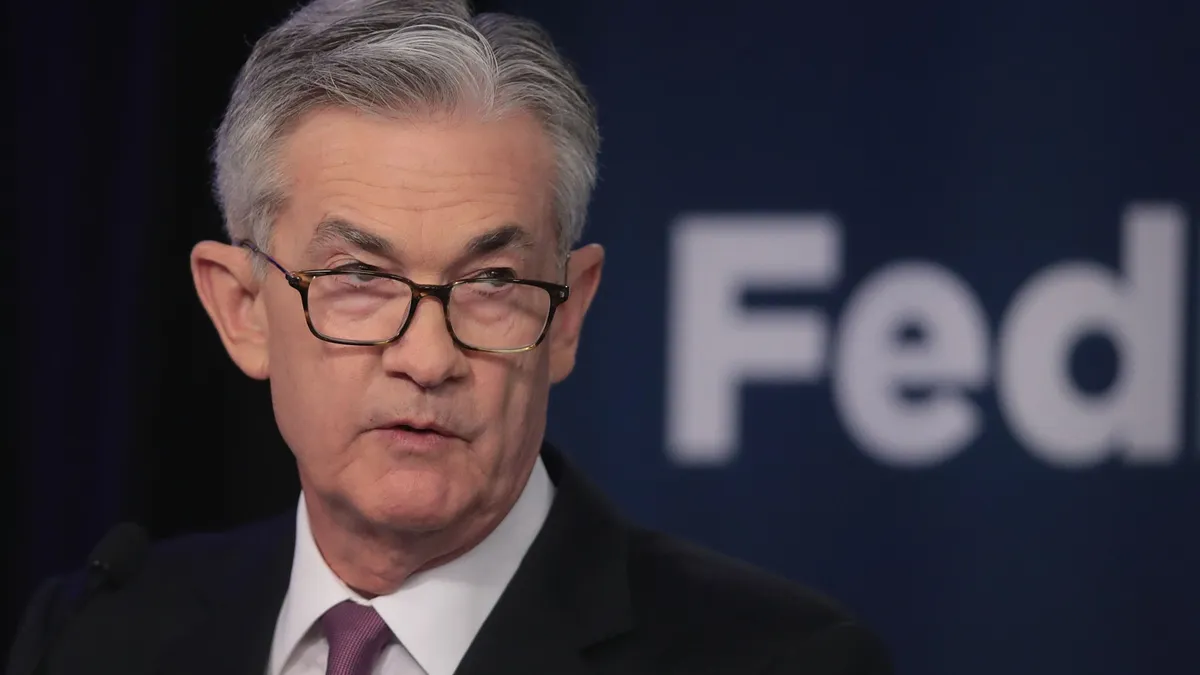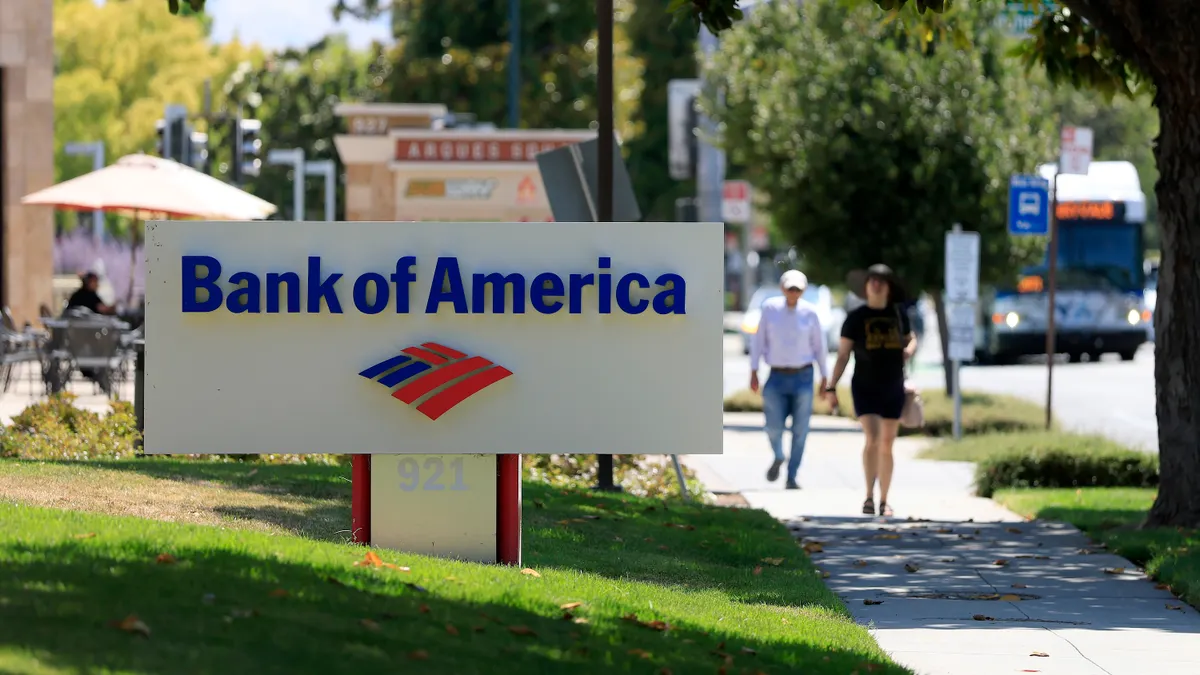Republican Sen. Josh Hawley and independent Sen. Bernie Sanders have teamed up to introduce legislation that would cap credit card interest rates at 10% for five years.
The unlikely union of Hawley, a conservative from Missouri, and Sanders, a liberal member of the chamber from Vermont, found common ground in calling for relief for working families from heavy card debt.
“When large financial institutions charge over 25 percent interest on credit cards, they are not engaged in the business of making credit available,” Sanders said in a press release Tuesday. “They are engaged in extortion and loan sharking. We cannot continue to allow big banks to make huge profits ripping off the American people.”
Hawley said he shared that sentiment: “Working Americans are drowning in record credit card debt while the biggest credit card issuers get richer and richer by hiking their interest rates to the moon,” he said in a separate Tuesday release that echoed some parts of Sander’s. “It’s not just wrong, it’s exploitative. And it needs to end.
The senators said the legislation was responsive to a suggestion last year from President Trump that card rates be capped. “While working Americans catch up, we’re going to put a temporary cap on credit card interest rates,” Trump said while he campaigned for the White House.
“We’re going to cap it at around 10%,” Trump pronounced during a rally last Septmeber. “We can’t let them make 25 and 30 percent,” he added, referring to the banks that issue credit cards.
Both senators pointed to a Forbes report pegging an average U.S. credit card interest rate at 28.6% despite banks drawing on the Federal Reserve at rates of less than 4.5%.
Hawley said: “Capping credit card interest rates at 10%, just like President Trump campaigned on, is a simple way to provide meaningful relief to working people. Let’s do it.”
Hawley hinted that he might be interested in Trump’s idea back in November during a Senate Judiciary committee hearing when Republicans and Democrats alike grilled executives from the card networks Visa and Mastercard over their companies’ interchange fee and interest rate practices.
During that hearing, Hawley pointed to Trump’s suggestion. “We could do that,” he said. “I think it’s a great idea.”
The senators noted the striking contrast of Americans piling on card debt as banks and card networks rack up billions of dollars in profits. Sanders pointed to Americans being burdened by a record-breaking $1.17 trillion in credit card debt.
Banks that issue the cards and the card network industry, dominated by Visa and Mastercard, both benefit from the interest that accumulates on consumers’ balances, as well as from fees that are imposed on both consumers and merchants.
Democrat Sen. Dick Durbin of Illinois and Republican Sen. Roger Marshall of Kansas have teamed in recent years on the Credit Card Competition Act proposal in a bid to introduce more competition into the network industry, but their bill failed to pass last year.
The American Bankers Assocation immediately denounced the Hawley-Sanders proposal for capping interest rates, calling it an attempt at “government price controls.”
“As history makes clear, this proposal would result in the loss of credit access for the very consumers who need it the most, forcing them to use less-regulated, more risky alternatives including payday lenders and loan sharks,” the ABA said in a statement Tuesday. “Congress has rejected these kinds of government price controls in the past, and we urge lawmakers to reject this misguided proposal.”
JPMorgan Chase, a major issuer of credit cards, pointed to a Consumer Bankers Association statement when asked for comment. That association called the legislation “misguided,” in a Tuesday press release. “Price-setting is political pandering that has, time and time again, proven to harm Americans,” the CBA release said.
For its part, the Biden administration crusaded against junk fees, seeking to do away with credit card late fees, and other bank finance charges that Consumer Financial Protection Bureau Director Rohit Chopra contended were overburdening American households.
Spokespeople for Capital One and Visa didn’t immediately respond to requests for comment on the Hawley-Sanders bill.
A spokesman for Mastercard said: “That’s something better addressed by an issuer. We are not involved in [annual percentage rates.”




















